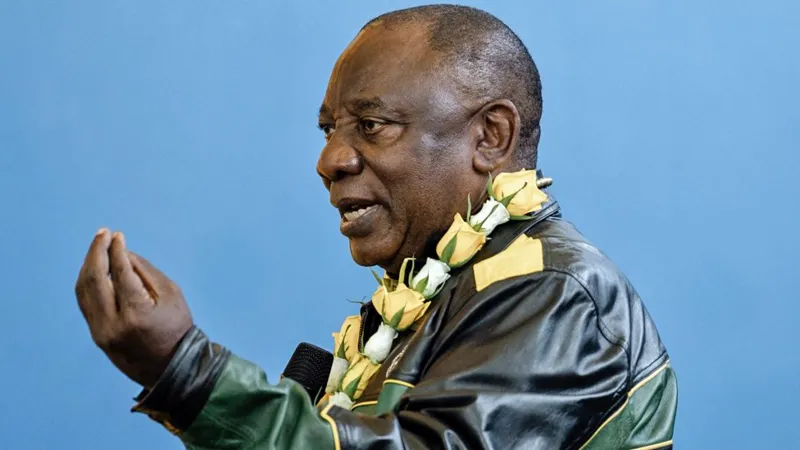When considering whether a seasoned negotiator from Nelson Mandela’s team could sway a figure like Donald Trump, it’s essential to understand the qualities that define both the negotiator and the former U.S. president. While their backgrounds and contexts differ vastly, examining the traits and strategies involved offers intriguing insights into the art of persuasion.
Mandela’s Negotiator: A Master of Diplomacy
Nelson Mandela’s negotiating team, notably figures like Cyril Ramaphosa and Thabo Mbeki, were instrumental in guiding South Africa’s transition from apartheid to democracy. These negotiators were characterized by their patience, strategic thinking, and ability to build consensus amid intense conflict. They employed a blend of moral authority, pragmatic compromise, and emotional intelligence—traits that earned respect across political divides.
Donald Trump: A Unique Negotiation Style
Donald Trump’s approach to negotiation is often described as aggressive, deal-driven, and high-stakes. His style emphasizes assertiveness, leveraging branding, and sometimes unpredictability to gain advantage. Trump’s background in real estate and entertainment shaped a persona that values boldness and directness, often contrasting with traditional diplomatic tact.
Can Mandela’s Negotiator Charm Trump?
The question hinges on whether the qualities that made Mandela’s negotiators effective can influence someone like Trump. Evidence suggests that effective persuasion depends heavily on understanding the interlocutor’s values, communication style, and psychological makeup.
- Shared Emphasis on Deal-Making
Both Mandela’s negotiators and Trump value deal-making, though their methods differ. Mandela’s team prioritized mutual understanding and long-term reconciliation, whereas Trump often seeks immediate gains. A negotiator skilled in framing proposals that appeal to Trump’s desire for wins and recognition could potentially engage him more effectively.
- Building Personal Rapport
Mandela’s negotiators succeeded by establishing trust and demonstrating moral authority. Trump, while often skeptical of traditional diplomacy, is known to respond to personal rapport and perceived strength. An experienced negotiator might leverage these aspects by aligning proposals with Trump’s self-image and interests.
- Strategic Use of Facts and Evidence
Mandela’s team relied heavily on facts, moral principles, and a compelling narrative to persuade adversaries. Trump’s decisions are often influenced by data, media narratives, and perceived strategic advantages. A negotiator who can present clear, compelling evidence aligned with Trump’s priorities could influence his stance.
- Adaptability and Flexibility
Mandela’s negotiators exhibited flexibility, adjusting their strategies to maintain dialogue. Similarly, Trump’s negotiation style can change based on circumstances. An adept negotiator would need to read the situation carefully and adapt their approach dynamically.
Limitations and Considerations
While the qualities of Mandela’s negotiators—empathy, patience, moral authority—are powerful, they may not always resonate with Trump’s style. Trump’s approach often values strength, directness, and winning, sometimes at the expense of consensus-building. Therefore, a negotiation strategy tailored to Trump’s worldview would be necessary, perhaps emphasizing shared interests and tangible benefits.
Conclusion
In theory, a former negotiator from Mandela’s team, armed with strategic insight, emotional intelligence, and adaptability, could potentially charm or influence Donald Trump. Success would depend on aligning negotiation tactics with Trump’s values and communication style, emphasizing mutual benefits, and establishing trust.
While the cultural and contextual differences are significant, the core principles of effective diplomacy—understanding the other party, building rapport, and presenting compelling evidence—remain universally relevant. Whether such a negotiator could truly charm Trump remains speculative, but evidence suggests that skillful persuasion, regardless of style, can make a difference—even with the most unconventional interlocutors.
Email Us on editorial@nnafrica.com













